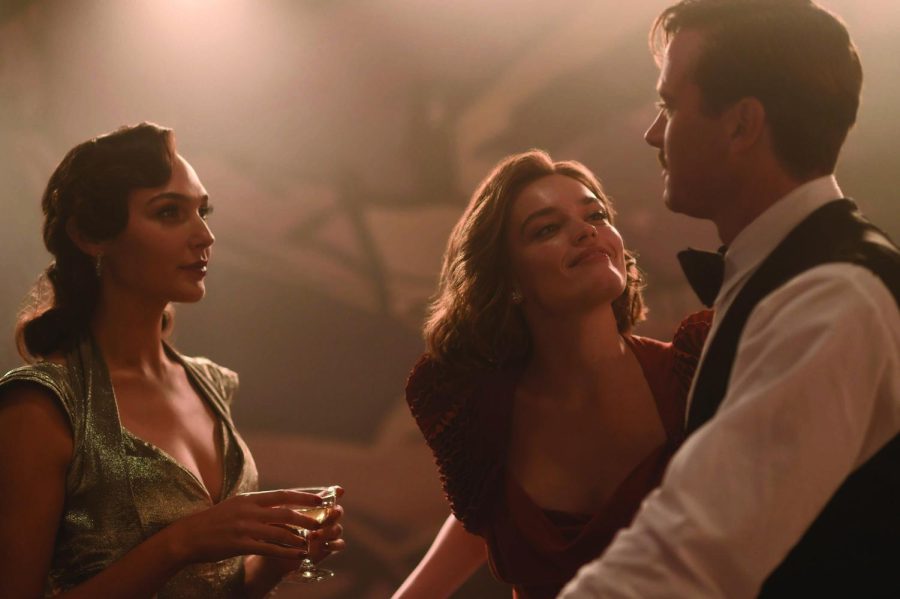“Death on the Nile” is a misguided murder mystery
Check out film critic Hunter Friesens review of “Death on the Nile”
Feb 14, 2022
The cards have been stacked against Kenneth Branagh’s sequel to “Murder on the Orient Express” for some time now. It had its production and release disrupted several times on account of the ongoing COVID-19 pandemic. It was part of the jumbled merger when Disney acquired Fox, creating a whole new set of business problems behind the scenes. And it was caught up in the scandal that swallowed the career of star Armie Hammer, as well as the anti-vax statements made by Letitia Wright and Russell Brand.
And unlike any great mystery that would take those elements and spin it into something beyond your imagination, those ingredients simply turn out to be part of an equation where their sum equals the rotten product that is “Death on the Nile.”
There, I’ve solved the mystery that every critic sets out to conquer: Is a movie worth its cost, in both time, energy, and money?
In this case, it most certainly is not.
But I can’t let this mystery go away so easily, as it must be dissected and analyzed so we know how and why this movie died in such an ugly fashion. Like the skilled cinematic detective that I am, I’ll go through the autopsy piece by piece.
The first reason for the film’s demise lies in its cast, which, both on paper and in the flesh, is a sharp downgrade from its predecessor.
Say what you want about “Murder on the Orient Express,” but you can’t deny the legendary assortment of actors that it assembled in Michelle Pfeiffer, Johnny Depp, Willem Dafoe, Judi Dench, Olivia Colman, Penélope Cruz, Derek Jacobi, Leslie Odom Jr., and Daisy Ridley. They had the perfect combination of movie star wattage and talent.
When it came time for Branagh to reload for the sequel, he wasn’t able to scrounge up enough to replace what he had lost. I mean no personal disrespect to these actors, especially the wonderful Annette Bening and Sophie Okonedo, but they pale in comparison to the originals. Any casting director could have told you the writing was on the wall the moment you replaced Michelle Pfeiffer with Gal Gadot.
Next on the list of causes of death is the technicals. I’ve been working on a theory that there is an inverse relationship between the number of visual effects that Branagh uses within his films and their overall quality.
His earlier Shakespearean works of “Henry V” and “Hamlet” (clocking in at a daunting 238 minutes) still stand the test of time in part because of Branagh’s use of lavishly authentic sets and costumes. It’s one of the reasons why his “Cinderella” is the only Disney live-action remake that deserves attention, and why he’s recently been nominated for Best Director for “Belfast.”
But when Branagh ups his budgets (as he did here, going from $55 to $90 million) and tries to push the envelope, such as he did in “Thor” and “Artemis Fowl,” things start to look and feel messy.
For not a single second did I believe that “Death on the Nile” was taking place on the Nile River. The CGI-rendered backgrounds are glossy and wouldn’t fly for 2002, let alone 2022, and rob the film of any sense of wonder and grandiosity.
The third and final, and most important, explanation is the central mystery at hand. In both the original Agatha Christie novel and film adaptations, the unraveling of “Murder on the Orient Express” is top-rate. For someone like me who wasn’t familiar with the plot going into Branagh’s adaptation, the ultimate reveal was shocking and satisfying.
The twists and turns within “Death on the Nile,” on the other hand, are far more on-the-nose. Screenwriter Michael Green and Branagh put a little too much attention on certain lines of dialogue and specific edits, making it all too easy to pinpoint who the killer is and how they did it.
I was only one-third of the way through the film by the time I pieced it all together, which made the next hour quite tedious as I waited for the characters to catch up. What fun is a murder-mystery whodunnit if you can easily solve it? The answer is that it’s no fun at all.
Overall: 2/5
On nearly every level, “Death on the Nile” is a serious dropoff in quality compared to its 2017 predecessor, which now looks much better in hindsight. Branagh has expressed interest in continuing the adventures of Hercule Poirot with further sequels, which, at this point, I’m not looking forward to.










Sadie • Apr 16, 2023 at 6:05 pm
I didn’t think the first one was very good either. Certainly neither was as good as earlier versions. I would say Gal Gadot replaced Johnny Depp, if anything.